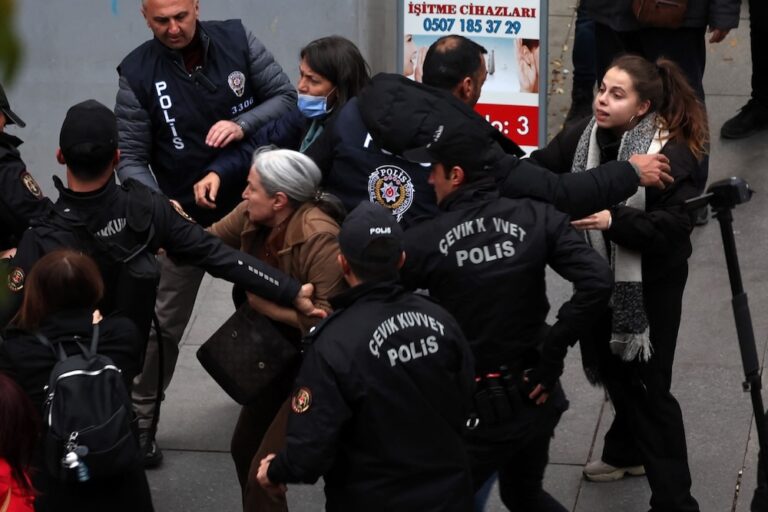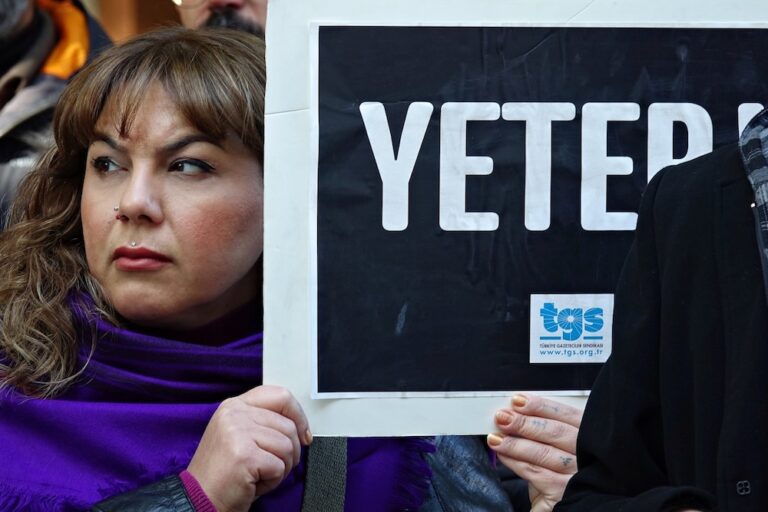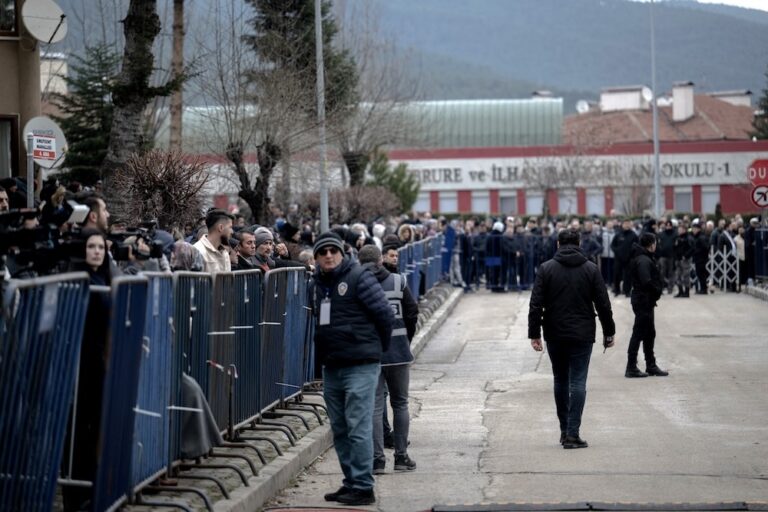(CPJ/IFEX) – CPJ has written to Prime Minister Bulent Ecevit in response to the Turkish parliament’s August approval of an amnesty law (law 4454 for 1999) that will secure the release of a number of jailed journalists and writers imprisoned on the basis of their published work and which is expected to temporarily cancel dozens […]
(CPJ/IFEX) – CPJ has written to Prime Minister Bulent Ecevit in response to
the Turkish parliament’s August approval of an amnesty law (law 4454 for
1999) that will secure the release of a number of jailed journalists and
writers imprisoned on the basis of their published work and which is
expected to temporarily cancel dozens of other prosecutions pending in
court.
**Updates IFEX alert of 10 September 1999**
CPJ welcomes the passage of this legislation, which effectively postpones
court cases and jail terms against individuals charged or convicted for
publishing news and opinions for a period of three years. A number of
unjustly imprisoned journalists and writers – thirty-two according to the
Turkish government – are expected to be released from prison in the coming
weeks, while dozens of other cases pending in court will also be suspended.
CPJ has already received reports that a number of journalists have been
released. CPJ hopes that passage of this law is a first step towards
comprehensive reform of the host of laws that are used to criminalise the
profession of journalism in Turkey. While the amnesty law is a welcome
development, it is only a temporary solution to the larger problem of
criminal prosecutions of journalists. According to its text, if a journalist
commits a similar “offence” within the three-year probationary period, then
he or she will be required to serve all previous sentences in addition to
any new sentence confirmed by the courts. Similarly, cases pending in court
against journalists would be reactivated.
As with the limited amnesty for editors passed by parliament in August 1997,
the current amnesty law provides no guarantee that new cases will not be
filed against journalists for what they publish. Indeed, almost as soon as
the 1997 amnesty law went into effect, prosecutors began flooding the
Turkish court system with new cases against editors.
According to CPJ, in the absence of comprehensive legal reform aimed at
abolishing the repressive laws that are used to punish free expression in
Turkey, journalists will continue to find themselves in court, and possibly
prison, for merely practicing their profession. CPJ hopes that the recent
comments of Appeals Court Chief Justice Sami Selcuk, who sharply criticised
restrictions on freedom of expression and urged constitutional reform, will
bring needed urgency to this topic.
Recommended Action
Send appeals to the prime minister:
constitutional reform on
the government’s agenda, and that you look forward to his efforts towards
bold and meaningful change
Appeals To
His Excellency Bulent Ecevit
Prime Minister
Basbakanlik
06573 Ankara, Turkey
Fax: +90 312 417 0476
E-mail: ddlbsl@tccb.gov.tr
Please copy appeals to the source if possible.


